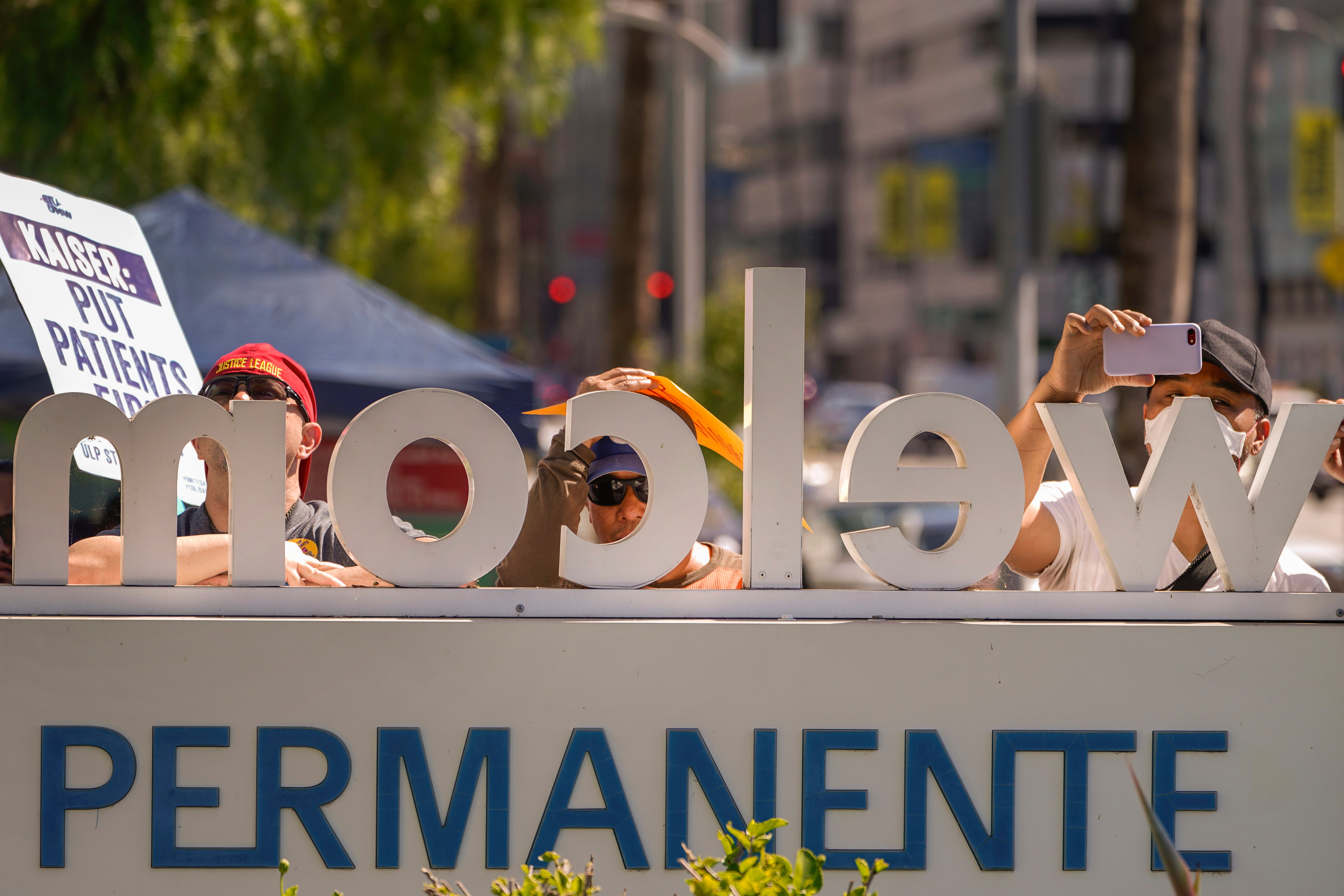Kaiser Permanente reaches a tentative deal with health care worker unions after a recent strike
Unions representing 75,000 health care workers who recently held a strike against industry giant Kaiser Permanente over wages and staffing shortages have reached a tentative agreement with the company

Unions representing 75,000 health care workers who recently held a strike against industry giant Kaiser Permanente over wages and staffing shortages have reached a tentative agreement with the company.
The three-day strike last week involving 75,000 workers in multiple states officially ended last Saturday and workers returned to their jobs in Kaiser’s hospitals and clinics that serve nearly 13 million Americans.
“The frontline healthcare workers of the Coalition of Kaiser Permanente Unions are excited to have reached a tentative agreement with Kaiser Permanente as of this morning,” the coalition posted Friday morning. “We are thankful for the instrumental support of Acting US Labor Secretary Julie Su.”
Kaiser Permanente, based in Oakland, California, confirmed the deal in a social media post.
Bargaining sessions had been scheduled for this week, the unions said.
The strike for three days in California — where most of Kaiser’s facilities are located — as well as in Colorado, Oregon and Washington was a last resort after Kaiser executives ignored the short-staffing crisis worsened by the coronavirus pandemic, union officials said. The coalition had given the company notice that another strike from Nov. 1 to Nov. 8 was possible and the Oct. 31 expiration of a contract covering the Seattle area would enable another 3,000 workers to join picket lines.
Their goal was to bring the problems to the public’s consciousness for support, according to the Coalition of Kaiser Permanente Unions. Some 180 workers from facilities in Virginia and Washington, D.C., also picketed but only on Wednesday.
The strikers include licensed vocational nurses, home health aides and ultrasound sonographers, as well as technicians in the radiology, X-ray, surgical, pharmacy and emergency departments.
“No health care worker wants to go on strike,” Caroline Lucas, the coalition’s executive director, said Thursday. “I hope that the last few days have helped escalate this issue.”
The company warned the work stoppage could cause delays in people getting appointments and scheduling non-urgent procedures.
Unions representing Kaiser workers in August asked for a $25 hourly minimum wage, as well as increases of 7% each year in the first two years and 6.25% each year in the two years afterward.
Kaiser, which turned a $2.1 billion profit for the quarter, said in a statement last week that it proposed minimum hourly wages between $21 and $23 depending on the location. The company said it also completed hiring 10,000 more people, adding to the 51,000 workers the hospital system has brought on board since 2022.
Union members say understaffing is boosting the hospital system’s profits but hurting patients, and executives have been bargaining in bad faith during negotiations.
The workers’ last contract was negotiated in 2019, before the pandemic.